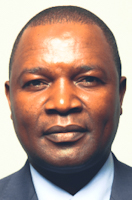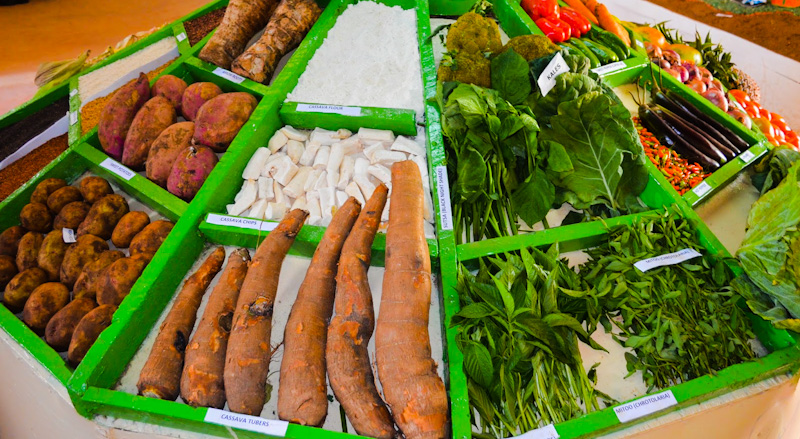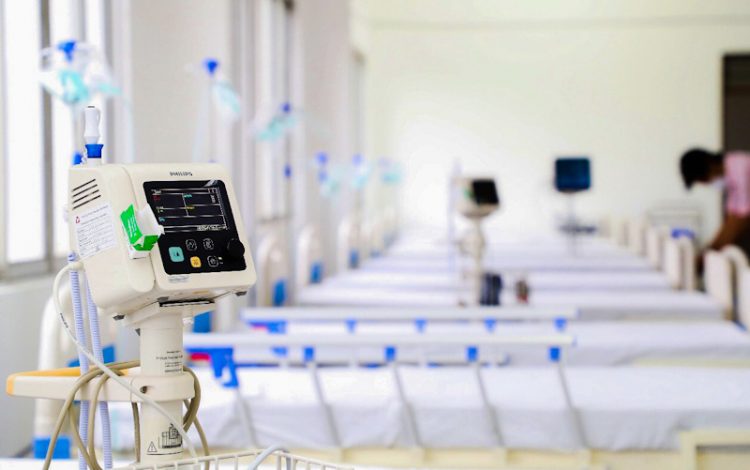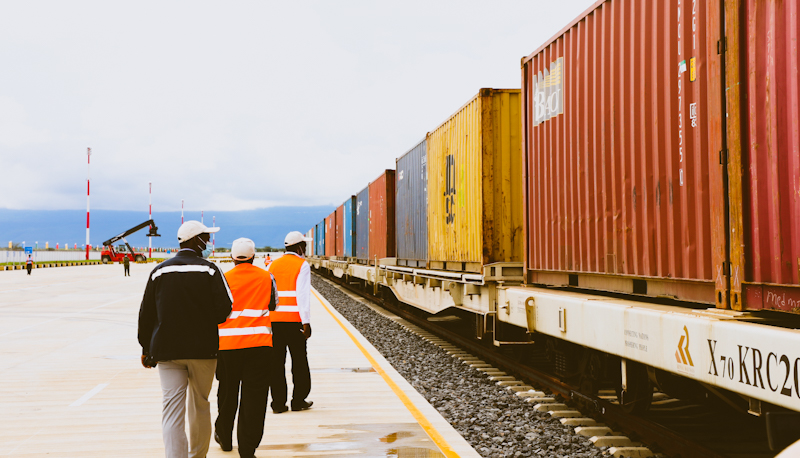 The low level of economic diversification is a leading factor to economic fragility in Africa. The global crisis caused by the COVID-19 pandemic has magnified the risks of low levels of economic diversity and the reliance on limited economic activities, products or channels for trade and foreign direct investments.
The low level of economic diversification is a leading factor to economic fragility in Africa. The global crisis caused by the COVID-19 pandemic has magnified the risks of low levels of economic diversity and the reliance on limited economic activities, products or channels for trade and foreign direct investments.
For example, over-dependence on one type of natural resource, singular economic activities in agriculture, trade with a limited number of countries, over-reliance on a narrow range of exports and/or imports and trade agreement restricted to specific regions or countries can be detrimental to the economy.
Africa is endowed with minerals and natural resources. Algeria, Angola, Libya and Nigeria together produce a substantial portion of the world’s crude oil; South Africa and several other African countries are a major source of the world’s gold output; Botswana, the Democratic Republic of Congo (DRC), and Sierra Leone are major sources of diamonds; yet other strategic minerals such as chrome, coltan, bauxite and manganese are major export products from a number of African countries.
A good proportion of the world’s tropical hardwood, coffee, cocoa, and rubber exports are produced in Africa. The foreign exchange earnings from these and other natural resources constitute a major source of Africa’s income.
The African Economic Research Consortium (AERC), has undertaken numerous policy-oriented research projects to address the issue of low economic diversification and lack of economic structural transformation and to provide appropriate policy advisory for the required reforms and interventions. Some of these studies include The Fragility of Growth in Africa; Natural Resource Management and Climate Change in Africa; as well as Natural Resource Management in sub-Saharan Africa: Consequences and Policy Options for Africa.
In a recent AERC Biannual conference on the theme of “Business environment, competitiveness, and growth in Africa,” one paper by Shanta Devarajan focussed on “African Competitiveness: What do Natural Resources have to do with it?” he makes the point that the effect of natural resources is not the traditional Dutch-disease effects, but rather the indirect effect of natural resources on governance (public expenditures, etc.) and the effects of governance on competitiveness.
This seems to provide the links and the explanation of why the resource curse has been so pervasive in African economies. The policy orientation in these studies is geared towards bringing policymakers in Africa up to speed on the global knowledge frontier of managing natural resources, appropriate economic management under sustainable conditions.

Impact of Low Economic Diversification in African Economies
Professor Njuguna Ndung’u, AERC Executive Director explains that “Despite favorable economic and social progress achieved in the last two decades, growth in most African countries remain characteristically fragile, with low levels of economic diversification, even less evidence of structural and economic transformation have combined to produce a pattern of protracted economic decline, weakening institutions and accelerated by negative shocks when they occur”.
Factors such as weak healthcare systems, poor public health infrastructure, and food security concerns also affect the economic performance of hard-hit and under-developed regions. The International Institute For Environment and Development (IIED) emphasises the unpreparedness for a global crisis, showing that even resource-rich countries remain vulnerable to external shocks and that “Africa nations are among those caught off guard, constrained by chronically weak health infrastructure and reliance on global value chains”, further warning that currency depreciation driven by increasing current account deficit will create even more complications for countries that rely on imports for food as well as oil supply.
Research by the United Nations University’s Institute for Natural Resources in Africa (UNU-INRA) argues for diversification to address economic loss, advising strongly against the current practice of over-reliance on extractive commodities by many African countries.
The Impact of COVID-19 and the emerging economic downturn
Most available estimates show significant economic contraction due to the COVID-19 pandemic, and some seem alarming, for example, the World Bank forecast shows that sub-Saharan economy could experience recession with gross domestic product (GDP) growth expected to fall from 2.4% in 2019, to between -2.1% and -5.1% in 2020.
To mitigate the impact, African countries, especially those most at risk, need evidence-based policies and implement solutions that particularly promote economic diversity. Such solutions should note the negative effect of external shocks and crises, national and global instabilities, price fluctuations, and related disruptions. An improved approach to economic strategies is imperative and includes (among others) transformation regarding:
- Financial inclusion driven by digital evolution offers unique opportunities for policymakers to integrate markets and production activities at a much lower transaction cost. Particularly the role digital platforms are playing in improving productivity in agriculture through prompt payments for produce, information sharing, and leveraging agro-industrial activities is very well documented.
- Examining restrictive barriers to trade, especially intra-African trade, as well as trade with a larger number of global regions. These include import and export policies, trade taxes, and customs processes reform: The continental Free Trade Area (CFTA), is the route to take.
- Increased local manufacturing – especially agro-industries to counteract the impact of import/export disruptions caused by an over-reliance of food, manufacturing, and goods sources from out of the continent. Each country should strive to optimally utilize its relative comparative advantage and expertise. But this will work and be supported by a restructuring of the global value chain architecture.
- Increased investment and capital – private, public sector, and foreign direct investment – into a diverse range of economic activities and infrastructural development that lowers transaction costs and complements private investments and allows the private sector to thrive, enhancing their profitability.
- Institutional capacity building and investment into skills development and human resources to meet the needs of evolving local, national, and global employment standards.
- The Fourth Industrial revolution characterized by the fusion of the digital, biological, and physical worlds, as well as the growing utilization of new technologies will define the future of Africa’s economic growth momentum and economic transformation.
- An active and progressive approach to activities to better weather the shocks of crises and other unexpected economic developments. Research and innovation play a pivotal role in finding ways to increase resilience and reduce fragility within economies
- Focusing on renewable resources as an alternative to economic practices that rely solely on natural resources can significantly limit the impact of anthropic activities on energy production and counter the gradual appreciation of the raw materials used in the process of traditional generation based on gas and/or oil power plants.
- Policy evolution and revolution is an urgent platform for change and improved regulatory frameworks from institutions that support a diversity of economic activities. African economies adopted strategic visions to charter the economic development paths as well as provide a platform of policy clarity and commitment. Some have failed to implement such visionary strategies and devoured the trust in the populace and the private sector.

The importance of economic diversification and structural economic transformation is no longer an issue for debate, but an urgent policy drive and implementation issue – The urgent question now is how quickly African countries will bring their acts together to establish and implement quick policy and administrative interventions for rapid recovery from the current economic crisis, as well as protect the economies from future fragility and economic recession.
As stressed by the IIED to African leaders, “reverting to ‘business as usual’ post-pandemic is tantamount to re-enforcing widespread economic hardship. Recovery from this depression must recognize the vulnerability of Africa’s resource base and the need to ‘stockpile’ new diversified economic alternatives”.
History has shown us that it is during a crisis like the current one that it is easy to introduce reforms, African economies need such reforms, from institutional reforms to policymaking, resource use, and distribution. Urgent and swift actions are required and heeding the call for economic diversification for transformative developments could very well be the answer to Africa meeting its development targets and goals.





1 Comment
Pingback: Why Kenya is Hurtling Towards Starvation on Policies Set by Non-experts